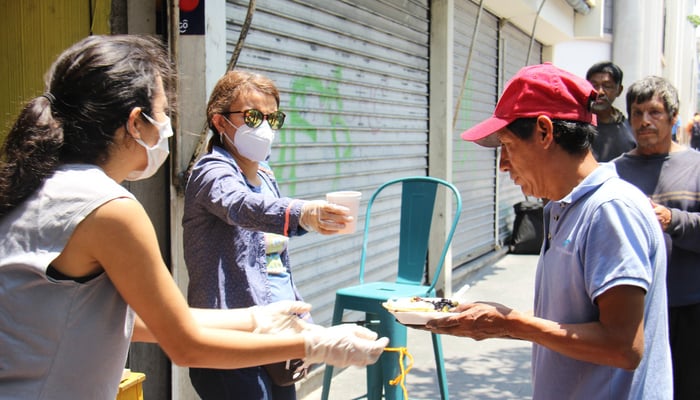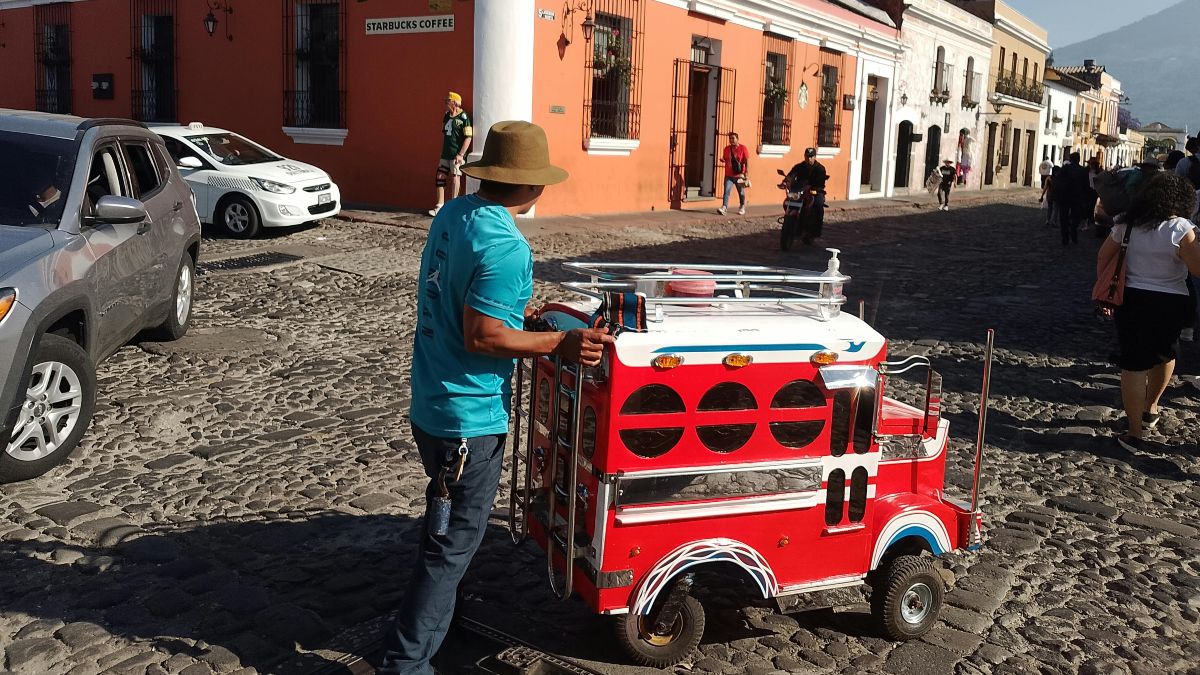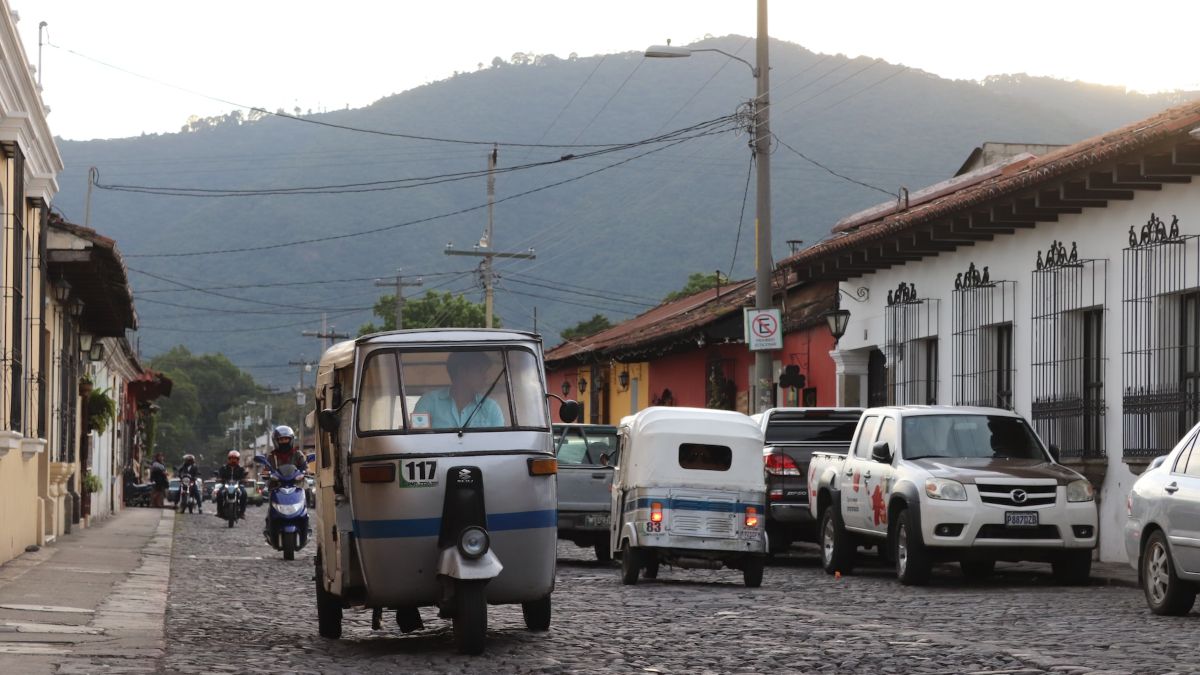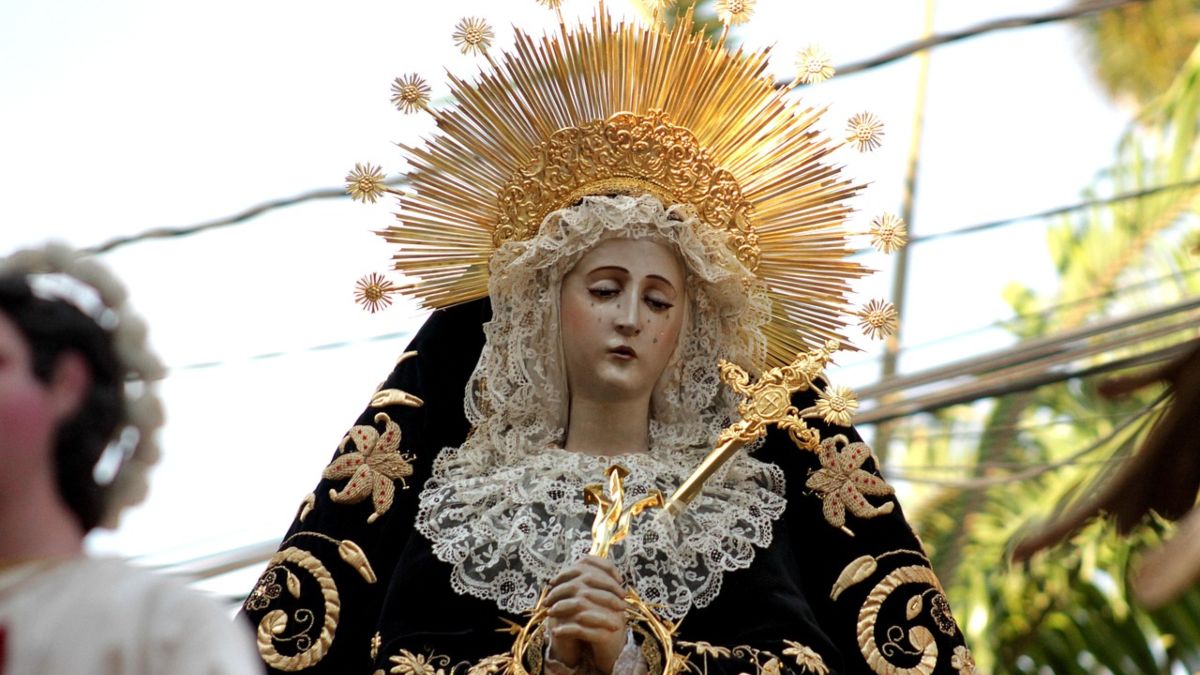How a small local restaurant in Guatemala City’s Zona 1 is stepping up to help those affected by the economic crisis in Guatemala caused by the ongoing COVID-19 pandemic.
The Coronavirus COVID-19 pandemic has hit the world like a sledgehammer.
Public health officials around the world prescribe self-isolation and social distancing to combat the spread of COVID-19 and the entire global economy is now paralyzed. These are unprecedented times.
Of course, pandemics are nothing new. The Spanish Flu was responsible for killing millions and shut the world down following World War I.
But considering that the Roaring 20s followed that pandemic, we could be somewhat optimistic about what might follow this one.
The new reality we’re now experiencing has been rather harsh in Central America.
In Guatemala, there’s a full lockdown in effect with a strict curfew. The Guatemalan government took no chances. Led by Alejandro Giammattei, a retired physician, Guatemala shut down before even confirming a single case in the country. Schools closed in the second week of March, and upon confirmation of the first case, Giammattei shut down public transport, shopping malls, and all social events.
These measures, while largely effective in containing the spread of the virus, have greatly impacted the Guatemalan economy.
Already fragile before this crisis, the Guatemalan economy appears to have been dealt a death blow. Like many other developing countries, much of Guatemala’s economy is informal. Some estimates place the ratio of the informal economy at around 70% of the total domestic trade within Guatemala.
“Informal” means a cash economy with no government oversight and no taxes paid on the transaction.
But that’s not the main issue.
The main issue is the fact that the poorest Guatemalans earn their income on a daily basis. This means that if they can’t go out and earn their living, they can’t eat. It’s that simple.
There are no other means of employment available for these people during the lockdown, and they can’t sell their goods online. Also, the 4:00 PM curfew has limited the number of working hours available to informal merchants.
The Guatemalan government has taken the lockdown seriously and arrested thousands of people for violating curfew. The penalty is a stiff fine, although if the violator can’t pay, then a mandatory jail sentence ensues. Needless to say, this is an outcome very few Guatemalans can afford.
One of the sectors devastated by the lockdown is the hospitality industry. With tourism ground to a halt, hotels and tour operators have seen their income shrink to nothing.
By many estimates, a majority of small and medium tourism-related companies may be out of business by early May.
Restaurants have also been decimated as the restrictions limit trade to takeout or delivery only. And while the government has been flexible in exempting food delivery from curfew restrictions, the fact is that very few people can afford to buy meals on a regular basis.
In the midst of all this lockdown confusion and distress, kind hearts have emerged throughout Guatemala, especially in those hardest-hit businesses.
Social media is full of generosity, but the story of one small restaurant in Guatemala City is particularly intriguing.
Rayuela in Guatemala City’s Zona 1, in the heart of the Historic District, has been providing meals for hungry folks every day since the lockdown started. They prepare around 400 meals on a daily basis, for free.
The only conditions are the observation of social distancing guidelines and that folks sanitize their hands… And Rayuela also provides the hand gel.
Speaking to the Guatemalan website, Soy502.com, Barry Goldwasser, one of the Rayuela’s owners, said that they started with around 10 people coming to cook, clean, and help out. That’s now expanded to more people coming every day to join the cause.
“It’s no longer a project from Rayuela,” said Goldwasser, “but from the community itself.”
This story underscores how true generosity can shine through even during the bleakest of times. For the beneficiaries of free meals, Rayuela is a ray of light amid the darkness.
Since this crisis started, the Guatemalan government announced some stimulus measures like temporary income subsidies and credit lines to small and medium-sized businesses.
But they’ve been fumbling through the process of getting money to needy families. And although the government has also been delivering food kits, it’s simply not enough for most families to make ends meet at this point.
Overall, Guatemala has been praised for its handling of the crisis from a public health perspective. Even so, it’s been the kindness and solidarity of locals that have helped make the lockdown much more manageable.
If you’re in Guatemala and want to help Rayuela, you can donate food and other supplies to the restaurant every day between 9:00 AM and 2:30 PM. The most in-demand items are rice, beans, pasta, chicken, meat, and similar essentials. Other much-needed items include Clorox, Lysol, alcohol gel, disinfectants, cleaning equipment, gloves, and masks. Milk powder, sanitary towels, diapers, and kids’ clothes/toys are also welcome.
For more info, call Rayuela at +502 2221-2453 or visit their Facebook page.
In the end, situations like this are a great opportunity to bring out the best in people, at least those people who aren’t concerned about hoarding toilet paper.
Read about our Central American coronavirus crisis heroes:
Tim Foss, Costa Rica
Anna-Maya Moberg & Luis Reyes, Costa Rica
Brian & Brenda Montgomery, Belize
Heart of Travel, Guatemala
Nestor Quixtan is a Canadian/Guatemalan economist, linguist, and writer. He lives in Guatemala City.




